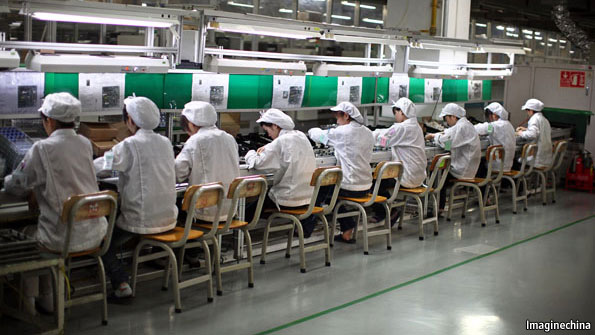
Labor activist Qiang Li says Apple is doing a much better job of monitoring factory conditions than Dell, Hewlett-Packard, Nokia and many others.
“I compared Apple with other cell phone companies, such as Nokia. And the conditions in those factories are worse than the ones of Apple,” he said.
However, Li says that conditions in the supply chain are not the responsibility of the suppliers themselves or the Chinese government. Apple ultimately bears responsibility, and the company should spend some of its record profits in improving conditions.
“Although I know that the iPhone 4 is made at sweat shop factories in China, I still think that this is the only choice, because Apple is actually one of the best,” Li told Laptop magazine.
Li praised Apple for disclosing the problems it has uncovered at it suppliers, especially because Apple’s reports are so serious and disturbing. He noted that competitors like HP and Dell haven’t been anywhere near as forthcoming.
He said Foxconn, which is infamous because of employee suicides, is actually one of the best places to work in the supply chain. Foxconn is a hard place to work, with long hours, grueling deadlines and abusive management. But pay and benefits are higher, Foxconn workers receive health and safety training, are properly equipped, and the plants are checked daily for safety compliance, according to a China Labor Watch report (“Tragedies of Globalization: The Truth Behind Electronics Sweatshops”)
“Foxconn is not good,” Li told the New York Times. “But if we compare all industries, electronics, textile, toys, Foxconn is one of the best.”
Li compared Foxconn to Compal Electronics, which has much poorer safety practices.
At Compal Electronics, a huge supplier that manufactures notebooks for Dell, HP, Lenovo and Toshiba, workers reported that the company does not provide face masks or ear plugs, despite loud noises. Apparently, there was not even a first-aid kit available. “In the event of an injury,” Labor Watch writes, “the workshop manager will give the injured worker some cotton to cover up their injury.”
But even though Apple does more than it competitors, it is ultimately responsible for the conditions at suppliers’ factories, Li argues.
Reading about the abusive managers, poor safety conditions, filthy living accommodations, long hours, and low wages, it’s tempting to blame the suppliers who run the factories or government authorities who are charged with enforcing China’s 2008 Labor Law. According to Li, China’s Bureau of Labor is limited in its abilities by local governments that receive tax revenue from the factories, but don’t have to provide benefits to what they classify migrant workers. The suppliers, he says, are also limited, because of price and production pressures from Apple and the other OEMs.
“If Apple still lowers their prices and doesn’t give enough profits to the factories, then the factories don’t have money to improve the labor conditions,” he said. “So it’s always the problem of Apple and not the problem of factories. We can see that Apple is trying to put all the responsibility on the factories by releasing the supplier factory list and trying to put the factories into the focus of the immediate public, but we think that Apple should do more to make a positive change in the whole system.”
Though he believes that Apple has done a better job of inspecting its factories than others, Li maintains that the public is right to put more pressure on Tim Cook’s company than its competitors who have the same problems. Because Apple makes the most profit, he reasons, it also bears the most responsibility for fixing a broken system. He maintains that it wouldn’t take more than 2-percent of Apple’s profits to dramatically improve workers’ lives in China while companies such as Dell and HP would have to spend more.
“Although we think Apple is among the best in terms of auditing, we still think that Apple can do more because it is the most profitable company in the world,” he said. “As soon as Apple is willing to give a small percentage of its profits, the workers can benefit a lot. But Apple is not willing to do that.”


